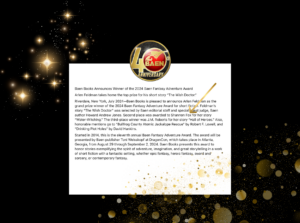Xenogenesis Series (Dawn, Adulthood Rites, Image) by Octavia E. Butler
CONTAINS SPOILERS
(From Lilith’s Brood, which contains all three novels)
Lilith Iyapo is in the Andes, mourning the death of her family, when war destroys Earth. Centuries later, she is resurrected — by miraculously powerful unearthly beings, the Oankali. Driven by an irresistible need to heal others, the Oankali are rescuing our dying planet by merging genetically with mankind. But Lilith and all humanity must now share the world with uncanny, unimaginably alien creatures: their own children. This is their story…
I took a class on sci-fi literature last fall and we read Adulthood Rites. I always meant to go back and read the other two stories in the collection, which I finally did this holiday.
Each of the stories are interesting and complex in themselves. But what is even more remarkable is how the three stories TOGETHER add up to something much bigger.
To put it simply: Humans destroy the Earth in a war. An alien race, the Oankali saves some of the humans. Their price for saving them is a “trade”. The Oankali survive by merging genetically with new species, always seeking to improve and perfect. The traditional Oankali family structure consists of a male, female, and an ooloi (a gender-neutral being). Oankali are not capable of reproducing except through the aid on an ooloi. The new family structure includes the same three Oankali, plus a male and female human.
This series is many things. It is the story of the human survivor, Lilith Iyapo, and her journey in this strange, new world. It is the story of the Oankali, in a microcosm. It is the story of a species, of us all. When read together the three books essentially represent birth, growth, and adulthood. At the beginning of the series there are no human-Oankali children. By the end of the series, not only are there human-Oankali children, but the “construct” ooloi have essentially ended the feud between the two races: the Oankali and the humans who fear their own destruction through racial dilution.
The series is very complex and worth dissecting in its entirety, if you can manage it. There are so many endless questions, so many conflicts, that it seems impossible to truly grasp the extent of the series. I have never read anything by Butler before, but she is truly a master.




